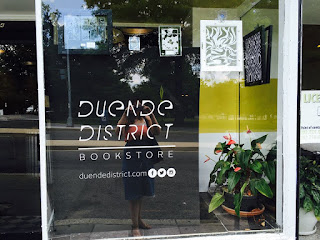By Henry
Shuldiner
Novel Year Info Session
Sat, 29 Jul, 2017 10:30 AM - 12:00 PM
Join
us for a free information session on our third annual Novel Year
Program. Starting September 12, serious novelists who have completed a
draft of their manuscript will have the opportunity to workshop their
entire novel over the course of a year. This year's instructor is Susan
Coll, who is the author of five novels. Learn all about the structure of
the workshop, and get to know Susan! Please RSVP to laura.spencer@writer.org
One of
the most exciting workshops we offer is The
Novel Year Program, a year-long intensive that gives novelists the opportunity
to finish, polish, and prepare to publish their novels. The small group of 10
meets bi-weekly and is similar in structure and rigor to an M.F.A. program but lacks the expense and time
commitment that such programs require. Also, unlike M.F.A. programs, authors
will workshop their entire manuscripts with feedback from other members of the
group and the workshop leader, Susan Coll.
 |
| Susan Coll |
Coll is
a five-time published novelist who has taught courses at The Writer’s Center for
more than 12 years. At the start of her career, she worked as a journalist and submitted short stories to
publishers, but only accumulated rejection letters for the latter. Coll eventually sold a short story to the BBC, which encouraged her to tackle
her first novel. “It was still a long road from there to getting published,” Coll
said. “But I was always a glass half-full kind of person, and the small successes
along the way kept me going.”
The Novel
Year Program is best suited for writers who have either finished a manuscript or have at least 75 pages of a novel in
progress. During the course, students will have the chance to workshop over 300 pages of their book. Participants
also have the opportunity to hear from guest speakers, including published
authors and an agent. The course is broken
down into two segments, fall and spring. The
fall segment includes occasional exercises in craft, and the spring is more
focused on the “nuts and bolts of publishing” according to Coll.
Spreading
the class out over a year gives writers the “chance to revise and take the long
view of what they are working on,” Coll said. Due to the length of the class, it’s
important for her to maintain a supportive environment in the classroom, which
can be difficult at times. “It’s hard to be on the other end of a critique, and
I’ve emphasized to my students that they are there to help one another
construct the best possible versions of whatever they are working on,” she
said.
The
critiquing aspect, while difficult at times, is essential to the editing
process. It helps writers build trust in the individuals editing the stories
and bolster their relationships as critics. One of the most rewarding parts of
the class was “the way the group bonded” said Coll. “We had a lot of fun [last
year], and people seemed genuinely disappointed when we took a break for the
holidays; I think some good friendships and possibly some ongoing writing
groups have formed.”
The only
change Coll plans to make to this year’s course is to extend meetings through June and meet every other
week rather than every week. “This will give students more breathing room to
read manuscripts and to work on their own books,”
Coll said. Individual consultations will be offered in July after the classroom portion of the class ends. The schedule of
the class will be as follows:
Fall:
Every other Tuesday, from September 12 - December 12
Winter/Spring:
Every other Tuesday from January 16 – June 26
Summer:
Individual check-ins with instructor in July
Interested
students are required to submit a cover letter and 25 sample pages of their
work. Admission to the course will be on a rolling basis, and the number of
participants will be limited to 10, so participants are encouraged to submit
early. If you are interested in this class, please send your submission to laura.spencer@writer.org.




